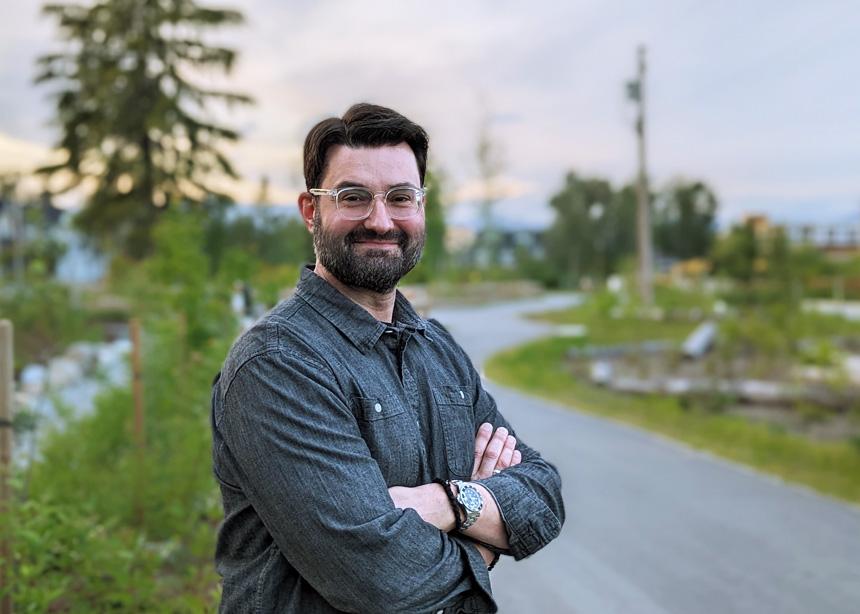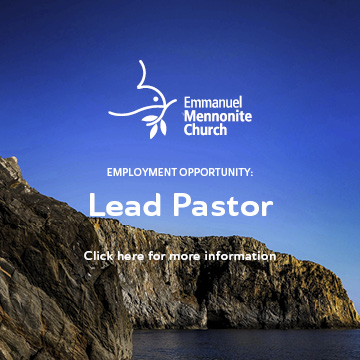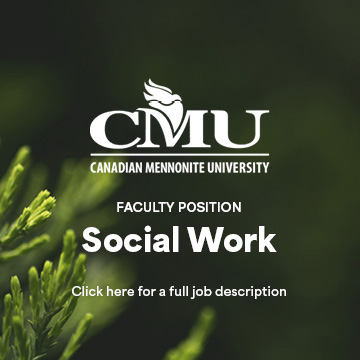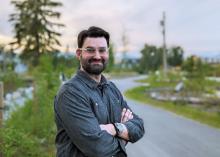"Mommy, why are those ladies wearing sheets?” I loudly asked my divorced mother. I was a young boy, and a group of nuns were standing in the dairy corner of the Hinky Dinky grocery store.
My mother had married at a very young age and then started nursing school. She was a nominal Christian, to be charitable, and my biological father was a Mennonite (but probably not a Christian).
My sister was born shortly after I complicated these barely adult lives. Their marriage lasted a few years, then blew apart. My earliest family memories are full of shades.
This sent my mother, and by extension me, on a spiritual journey.
Thrust into shame and single-parenthood survival, it also opened the way to the kinds of questions pain invites. In those waters, my mother was found by Jesus.
Our little family was welcomed into a little Pentecostal congregation—the kind of church that less respectable folks in small-town early 1980s South Dakota could attend in their messiness.
Where I grew up, you could be atheist, Lutheran or Roman Catholic, but going to “off-brand” denominations was suspect. Yet, in that off-brand place, Jesus met me in the liturgy of Pentecostalism. At several points, I gave my allegiance to Jesus.
It was a church that had deep flaws and a flawed pastor, but it also had stories in spades.
Stories from visiting Pentecostal missionaries telling the wonders of the Spirit tearing down walls. Stories that you were invited into through engaged worship with word, body and fire.
We were told that every Christian should expect the Holy Spirit to empower you and give you physical proof, like a bodily sense of God’s presence and speaking in tongues. It was radically postmodern, gritty, material and embodied.
The Holy Spirit would fill and baptize whoever humbled and yielded themselves in prayer and repentance. A lot of theatrics were involved, too. We were taught it’s “dirt and divinity”—if you want divinity, you’ve got to humble yourself and discern through the dirty parts of life too.
When my mother was struggling to feed, clothe and shelter us, she worked the only shifts she could get.
It was during this extreme struggle of just keeping it together that she connected with the nuns of Sacred Heart Monastery in Yankton, South Dakota. They hired her as their nurse, which meant good hours and more time with her children. I will be forever grateful to those ladies wearing sheets.
In our little Pentecostal church, my mother met a man with a parallel story, and eventually they married. I gained a stepfather and two more siblings.
But the flaws of the church became more pronounced. Remarriage was questionable; my mother and stepfather were welcome to tithe and serve in some roles, but their remarriage made them less-than.
Imagine that: As Pentecostals in a small town, they were in the “cult,” and then in the “cult,” they were now second-class citizens. Yet, the Holy Spirit has ways of seeping through walls built by the false-holiness, identity-through-judgment crowd.
Through my childhood and youth, I did have some Christian light from my Mennonite grandparents. They served as missionaries with Africa Inter-Mennonite Mission, the General Conference Mennonite Church and Habitat for Humanity.
When they were on furlough, they expressed love and care. They also sent letters from Zaire (now Democratic Republic of the Congo). I remember one with a crushed fried caterpillar!
Later I would learn of Grandpa’s participation in Woodlawn Mennonite in Chicago, an inter-racial church in the civil rights era, and an early Freedom Ride he took into the Deep South. This work was done with his well-known friend, Vincent Harding.
Grandpa was active in supporting the civil rights movement in South Dakota, and he was lifelong friends with civil rights champion Theodore (Ted) Blakey. The rural thoroughfare outside my grand- parents’ farm was renamed “Equal Rights Road.”
I have barely scratched the surface of my faith journey. This is just an account of its early stages.
What I can say is that along the way, it has been marked by encounters with the Holy Spirit, Jesus-y justice, the ancient church, a radical reorientation of my theology around the cross and a relationship theology of a God revealed as personal love in Jesus.
Crises have led me to deconstruct and reconstruct my faith at least three times. There were always churches there for me—gatherings of people that, in their imperfect ways, made space for my questioning.
The intention of the church folks was often secondary to the spirit at work on the edges of these gatherings.
The gatherings of the church were vital but not always in the ways an over-programmatic church-type would think. The act of creating sacred spaces was itself more important in my formation than any sermon or worship-crafted event.
Something else that was formational for me was experiencing childhood disease and being marginalized in a small town. This meant that I went deeper into the life of the spirit, and the spiritual friends and family of the local church, than someone of more “respectable” birth and practices.
As a child and tween, I sensed that my body was trying to end me. This contrasted the Pentecostal teaching that the Holy Spirit will speak through one’s imagination and body.
I lived into that wild tension of being broken and yet blessed.
In the midst of this, I felt a tug, a call—a deep love for the local church, for it is where I encounter Jesus. For me, salvation has never been primarily about sin-management and atonement for guilt. Salvation has been about being called into the empowering, overwhelming love of God in Jesus.
Jesus, through the spirit in the church, has changed me over and over, and empowered me to empower others.
Shelby Boese is executive minister of Mennonite Church B.C.





Add new comment
Canadian Mennonite invites comments and encourages constructive discussion about our content. Actual full names (first and last) are required. Comments are moderated and may be edited. They will not appear online until approved and will be posted during business hours. Some comments may be reproduced in print.